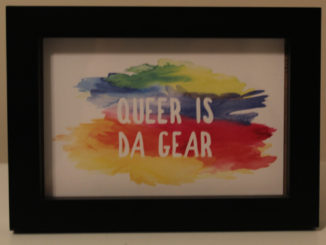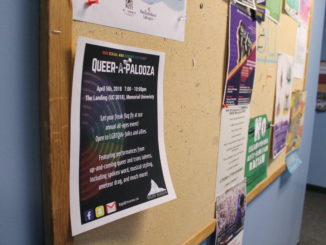Bill C-16 is set to amend the Canadian Human Rights Act and the Criminal Code to protect gender identity, as trans people search for relief.
Jessie Dobbin
Kicker
On Oct. 18, the government of Newfoundland and Labrador passed Bill C-16, which has been languishing in the Senate for approval since March 2.
Bill C-16 is an amendment on the Canadian Human Rights Act to add gender identity and gender expression to the list of “prohibited propaganda.” This also amends the Criminal Code to protect against such “hate propaganda” and classifies it as a hate crime.
Dean Harnum lives in New Harbour and wrote a letter to a member of each political party in Newfoundland and Labrador on Feb. 22 regarding the passing of the bill. He asked for the addition of a gender mutual bathroom option to the legislation as a way to “offer the hand of acceptance and inclusion to the trans members of our society.”

“Take the male sign off, take the female sign off and just put “toilet”, or “gender mutual washroom” … Or a sign that says ‘we don’t care, please wash your hands.’”
Harnum works with advanced education skills and education and often deals with the public. He says many people come in, who he knows are transgender, and when he points them in the direction of their washroom, they’re hesitant to enter.
“I’ve watched them stop and look at one, then the other and literally watch people hang their head, like they’ve been defeated and walk into the bathroom that they would’ve been assigned at birth,” said Harnum.
Seekay Skinner, a 21-year-old who has made the transition from female to male, says the experience of using public washrooms can vary from scary to even violent. He says he tries to avoid public washrooms for that very reason.
“Usually what will happen is, I go into a stall and I will wait until the place is clear,” said Skinner. “Or, if there’s too many people in there, I turn around and hold it, basically.”
Skinner says for people like him, gender mutual bathrooms would be more accommodating and make him feel more comfortable while out in public.
“These things are necessary for some people to do something as simple as using the bathroom in public.”



